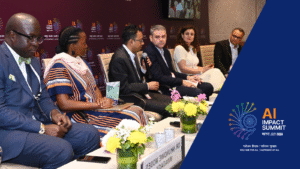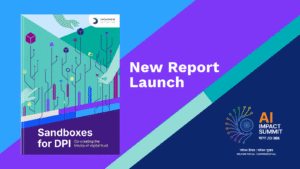24 July 2025 — Today, the Datasphere Initiative convened a select group of global leaders for an exclusive Global Sandboxes Forum Insights Session to unveil the Sandbox Assessment Framework (SAF),a first-of-its-kind tool designed to elevate the design, evaluation, and impact of sandboxes for data governance.
This high-level virtual event brought together 62 leading voices from regulatory agencies, academia, civil society, and the private sector, including 12 expert panelists. The SAF aims to streamline sandbox development globally, embedding human rights safeguards and promoting cross-border innovation at a time when agile, trustworthy governance solutions are urgently needed.This Insights Session was dedicated to the early phase of sandbox development—sandbox initiation—and structured around three foundational axes of the SAF:
- WHAT and WHY: Clarifying the purpose and strategic value of a sandbox.
- WHO: Identifying and engaging stakeholders.
- HOW: Planning for resources, processes, and safeguards.
“The SAF is a collaborative blueprint to turn sandboxes into sustainable, inclusive, and strategic governance tools,” said Lorrayne Porciuncula, Executive Director of the Datasphere Initiative. “This framework marks a turning point in how we scale experimentation responsibly, with equity and transparency at the core.”
A Three-Part Exchange: Key Perspectives on the Future of Sandboxing
In exploring the “What and Why” of sandboxes, Ahmad Rizal Azwir (Lead, National Technology and Innovation Sandbox, Malaysia) demonstrated how national sandbox programs can support innovation by reducing risk and encouraging public-private collaboration. Prof. Antonino Rotolo (Coordinator, EUSAIR, European Union) underscored the relevance of AI sandboxes in facilitating legal experimentation and regulatory learning. Alany Reyes Pichardo (Senior Supervisor for AI, Dutch Data Protection Authority) emphasized how data protection authorities use sandboxes to engage with developers early, guiding ethical and compliant design choices while fostering public trust.
The “Who” segment brought forward practical and inclusive perspectives. Keith Sabilika (Senior Specialist, Financial Sector Conduct Authority, South Africa) emphasized the sandbox as a mutual learning environment for regulators and innovators, helping shape adaptive policies based on real-world feedback. Nasubo Ongoma (Research Consultant, Qhala, Kenya) highlighted the need for clearer, more accessible sandbox processes for startups navigating fragmented regulatory environments. Dr. Abigail Gilbert (Co-Director, Institute for the Future of Work, UK) called for a more expansive understanding of stakeholders, urging sandbox leaders to consider social impact and include labor and community voices from the outset.
Operational challenges took center stage in the “How” segment. Jonathan Middleton (Director of Financial Services, NayaOne, UK) cited peer-reviewed FCA data showing that sandbox participation can reduce product development timelines by 9 to 12 months and significantly improve investment outcomes. Eliza Lemos (Senior Legal Advisor, Attorney General’s Office, Brazil) shared how Brazil is embedding sandbox thinking into public institutions through principles-based legal frameworks and inter-agency coordination. Lee Chein Inn (Deputy Director, IMDA, Singapore) described how sandboxes are embedded within broader national strategies to foster agile, cross-sectoral policy innovation. David Benhamou (Legal Advisor, CNPD, Luxembourg) underscored the importance of transparency, proportionality, and early engagement in building trust between innovators and regulators.
A Path Forward for the Datasphere
Live polling during the session revealed that participants shared common pain points. Defining clear goals, securing buy-in, and adapting frameworks to different institutional contexts emerged as leading challenges. When asked about the Sandbox Assessment Framework, participants favored practical formats like self-assessment tools and checklists, reaffirming the need for actionable guidance in this growing field.
This approach aligns with the Datasphere Initiative’s broader mission: to develop inclusive, interoperable governance frameworks that unlock the full value of data. As the SAF enters its pilot phase, the Datasphere Initiative invites partners from across sectors and regions to co-create and refine sandboxing as a scalable, ethical tool for digital innovation.
To get involved or learn more, visit sandboxes.thedatasphere.org.
The Global Sandbox Forum will have its next session in August. Reach out at [email protected] to know more.



